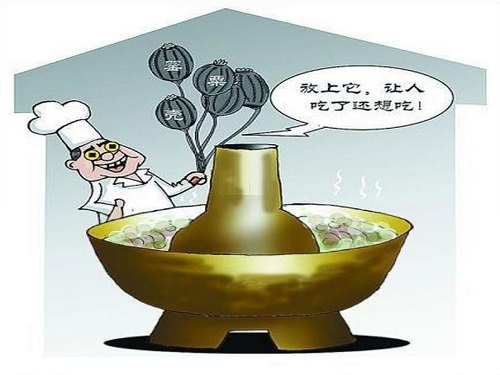Partial meal company food detection *** ingredients
The State Food and Drug Administration found that the foodstuffs operated by 35 catering service units contained papaverine, morphine, codeine, narcetine, and thiabaine, etc. Suspected of illegal additions. We will now announce the investigation and disposal as follows:
An indwelling needle is a medical device also known as a central venous catheter or central venous catheter. It is a long, thin tube that can be inserted into the veins of the body for fluid infusion, blood transfusion, nutritional support, drug therapy, etc. It is indicated for patients who require prolonged intravenous fluids
Composition of IV Cannula
1. Fine Needle: The fine needle is made of stainless steel and has good elasticity and a sharp tip to aid insertion into the vein.
2. Push rod: The push rod is used to control the depth of the fine needle so that it can be inserted into the vein.
3. Sheath: The sheath is used to protect the fine needle to prevent accidental stabbing.
4. Catheter: The catheter is used to inject the drug or nutrient solution into the vein at a specified flow rate. 5. Straps: Straps are used to secure the needle to the skin to prevent movement or pulling out.
Intravenous Cannula, IV Cannula Gauge, IV Cannula Parts Ningbo Siny Medical Technology Co., Ltd , https://www.sinymedical.com
1. Five public security agencies were transferred and the public prosecution has been filed. They are: Zhou Hei Ya Su Meng Road Crossing Store in Suzhou City, Anhui Province; Hui Peng Zhou Hei Ya Business Store in Yongqiao District, Suzhou City; Old Iron Grilled Fish in Huiyang District, Huizhou City, Guangdong Province; Hechuan District, Xiaoyan Town, famous noodle restaurant, Hechuan District Xiaoyi Town, the world's first powder.
2. A total of 20 cases were transferred to public security agencies for investigation. They were: Jiangjia Beef Noodle Museum in Linghe District, Jinzhou City, Liaoning Province; Jiaxin Hotel, Jinshan District, Shanghai; Youqin Food Store, Jinshan District; Taishan Village, Zhangye Town, Jinshan District; Dong Jikai Food Stall, Minhang District Shengxian Hotel, Jinshan District Gulian Road Nanjing Soup House Laoyayue Fan Soup; Jiangsu Province Wuxi Nanchang District Yixian Hong Snack Store, Yizheng New Town Yikang Delicatessen; Zhejiang Hangzhou West Lake District Changqiao Farmer’s Market North Gate Xiaotang Meiwei City; Loudi City, Hunan Province; Xinhua County, Menghuashan Liwa Noodle Museum; Zhuzhou City, Jixian County Jixing Restaurant; Chongqing Wushan County Overlord Fish Chicken Restaurant, Wushan County Jiangji Oil Shrimp Restaurants, Jiangnan District Wenlao Liuhuoguo, Beixin District Yaojia Hotpot, Beixin New District Yixiangtang Hotpot, Rongchang District Changyuan Street Dalong Old Hotpot, Sichuan Province Bazhong Nanjiang County Nanjiang Town Choong Ying Home Cooking Restaurant, Yibin City Pingshan County Niuguan House Restaurant, Renshou County, Meishan City, Wengong Town, Jin's acid radish fish hot pot restaurant.
3. The food and drug supervision authorities are currently in the process of investigating 10 cases: Beijing Fangshan District Liangxiang Weinan Fuxi Snacks, Xicheng District Xie Shirong Fried Chicken Stores, Beijing Huda Catering Co., Ltd., Beijing Jumbo Catering Management Co., Ltd. , Donghe District Baoheju restaurant; Jiading District, Shanghai Anting Town, the original roast chicken public hot pot restaurant; Zhejiang Province, Wenzhou City, Fujian Province Putian Chengquan snack bar; Shandong Province, Weifang City, Linyi County Yijia heart hot pot; Loudi City, Hunan Province Yangxing Noodle Restaurant in Louxing District, Lizhongmin Qingtang Lamb Meat Shop in Louxing City, Louxing District.
4. The addition of poppy husks or poppy powder in foods violates the first article of Article 34 of the Food Safety Law concerning the prohibition of the production of non-food raw materials for production or use of foods or the addition of chemical substances other than food additives and other hazards to human health. The provisions on "material food" are in accordance with the "Interpretation of the Supreme People's Court and the Supreme People's Procuratorate on Several Issues Concerning the Application of Law in Handling Criminal Cases Which jeopardize Food Safety" (No. 12 (2013)), and are suspected of constituting the crime of producing and selling toxic and harmful foods. . Of the above catering service units, 25 have been transferred to public security agencies for criminal investigation.
V. The food and drug regulatory departments of relevant regions must continue to conduct in-depth investigations and evidence collection to find out the illegal facts as soon as possible. If violations of law are imposed, they shall be severely punished according to law. If the circumstances are serious, the licenses shall be revoked; any suspected crime shall be transferred to the public security organ. At the same time, it is necessary to work closely with public security agencies to dig deeper into the sources of illegally added substances and severely punish law-breakers in all aspects in accordance with the law. The investigation of the case was reported to the State Food and Drug Administration before February 19, 2016.
6. In the daily business activities, the catering service units must strictly implement the food safety inspection system for raw material purchase and inspection, soliciting for ticketing and other food safety systems to ensure that the purchased food materials are safe and reliable. The food and drug supervision departments must strengthen the supervision and inspection of food service units such as hot pot restaurants, mala Tang, fried chicken shops, and ramen restaurants, and find that illegally adding non-edible substances such as poppy hulls and poppy powder are severely investigated and dealt with according to law.
Seventh, the State Food and Drug Administration reminded consumers that catering service units suspected of adding non-food materials such as poppy hulls and poppy powder in food could report complaints to local food and drug regulatory authorities or the 12331 hotline.